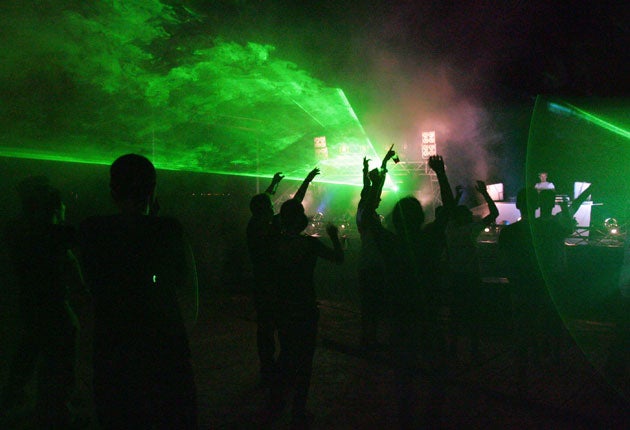Wild Abandon, By Joe Dunthorne
With parents like these, who needs gangsters?

Your support helps us to tell the story
From reproductive rights to climate change to Big Tech, The Independent is on the ground when the story is developing. Whether it's investigating the financials of Elon Musk's pro-Trump PAC or producing our latest documentary, 'The A Word', which shines a light on the American women fighting for reproductive rights, we know how important it is to parse out the facts from the messaging.
At such a critical moment in US history, we need reporters on the ground. Your donation allows us to keep sending journalists to speak to both sides of the story.
The Independent is trusted by Americans across the entire political spectrum. And unlike many other quality news outlets, we choose not to lock Americans out of our reporting and analysis with paywalls. We believe quality journalism should be available to everyone, paid for by those who can afford it.
Your support makes all the difference.Joe Dunthorne recently admitted in an interview that, following the success of his debut, Submarine, he felt compelled to write a second novel that was startlingly different.
Consequently he devoted some time to a fantasy gangster novel that went nowhere, before rejecting it for Wild Abandon, officially his "difficult second novel". While that might have been a tricky process for Dunthorne, we the readers benefit from his decision.
It is easy to understand the pressure that the young author must have felt: Submarine won the Curtis Brown Prize, was shortlisted for the Bollinger Everyman Wodehouse prize for comic literature and was made into a successful film. Pretty much a debut author and his publisher's dream, so hats off to Hamish Hamilton for not rushing out the gangster epic, and for letting Dunthorne do what he is gifted at: warm, insightful comic writing.
Wild Abandon is the story of a failing commune, based on a secluded farm, and the family at its heart. The commune's leader is Don, a man who is not dealing well with the slow disintegration of both the community he has built and his own family. In addition, his children are beginning to display the startling effects of adolescence, and of having been brought up on a commune.
Seventeen-year-old Kate dreams of escape. The frustrations of trying to rebel against parents who are "easy with whatever" are immense. Viscerally repulsed by her little brother and wearied by her mother's determination to be friends with her, she longs for the glamorous pastures of suburbia. Or at least, suburbia as she imagines it from the limited popular culture she has been allowed access to. It is not long before she makes a bid for "freedom".
Meanwhile, 11-year-old Albert busies himself with what he is convinced is the imminent end of the world. His preparations are as elaborate as they are ridiculous. But, while the world doesn't end, the world as he knows it – one where people wear jumpers the colour of margarine and have their showers timed for ecological reasons – soon changes dramatically: Albert's mother Freya finally leaves Don, and Don becomes convinced that holding a rave is the glue that will mend broken relationships.
Despite the commune dwellers' many and varied eccentricities, Wild Abandon never lapses into parody, because Dunthorne doesn't scrimp on the small moments that make a character light up. If ever there were a sentence that captured the grim frustration of waiting for adolescence, it is: "he coveted the smell that vented out from her non-breathable anorak."
Given that it is rather plot-light, there might have been a worry that Dunthorne would try too hard to go for the joke every time. But his humour remains as robust as it is warm, and each character is treated with a delicate combination of respect and hearty ribbing. Don and Albert's ever more fantastical dreams are particularly engaging, and one scene in which Don attempts a disastrous man-to-man relationship chat is truly laugh-out-loud hilarious.
Occupying a terrain that lies between the very British humour of Jonathan Coe and the zeitgeisty ambition of Douglas Coupland, this is a confident follow-up that manages to be both tender and biting. Dunthorne was right to keep to a voice that suits him.
We're still curious about the gangsters, though.
Join our commenting forum
Join thought-provoking conversations, follow other Independent readers and see their replies
Comments